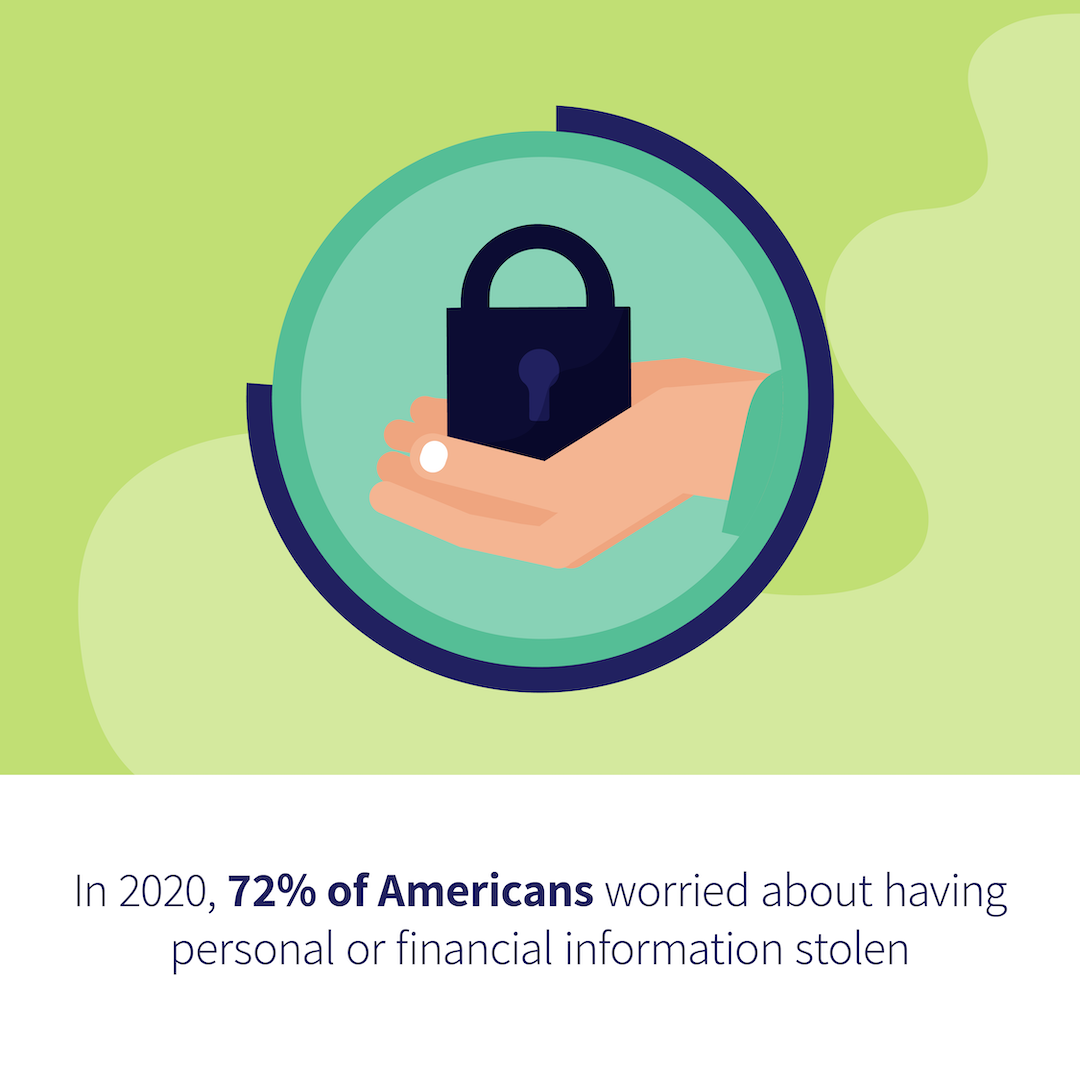Identity and Privacy in 2020: Riding Out the Storms
Summary: 2020 was a year full of health, social, and environmental turmoil. And identity thieves and privacy risks have been thriving on all the disruption. Let’s take a look at the causes and threats of these risks, but also the power we have to protect ourselves, now and in the future.

This year has been one for the record books: the pandemic, more and larger storms, epic wildfires, plus political, economic, and social upheaval. It’s been a rough ride for almost everyone…except the people who prey on our identities and privacy. They are doing just fine, which means the rest of us have one more set of things to worry about.
According to Statista, identity theft was the crime that Americans worried about most in 2020. (Seventy-two percent worried about having personal or financial information stolen, and 66 percent worried about becoming victims of ID theft.) It’s a legitimate concern, because identity theft increased 46 percent from 2018 to 2019. And while the 2020 numbers aren’t in yet, this year may be worse because, ironically, identity thieves have been cashing in on people’s other worries, such as COVID, to steal a lot of personal information.
Hitting the COVID Jackpot
The COVID-19 pandemic has created multiple opportunities for criminals. The sudden shift to working from home left many workers and businesses scrambling to secure computers and home networks against cyber-attacks. Unfortunately, they weren’t quick enough—people working at home fell victim to an onslaught of attacks, including consumer-targeted ransomware, COVID- related phishing scams and “zoombombing” which gave hackers a window into people’s homes and conversations. Even without online intruders, video-conferencing classes created added risk for kids of embarrassment and bullying, just as healthcare organizations have struggled to protect patients’ medical privacy from cyber intruders and unwanted listeners during telehealth appointments
In addition to the usual disaster relief scams following this year’s storms and fires, an explosion of COVID-related scams and phishing campaigns enabled thieves to steal people’s personal information and passwords. COVID chaos has also made it easy for thieves to cash in on stolen identities. For example, experts estimate that criminals stole billions of dollars by impersonating individuals and claiming COVID unemployment relief, and the COVID extension lengthened the season for tax fraud scams.
A Good Year for Data Giants and Trolls
2020 also took its toll on personal privacy. A contentious election and 186 million stolen voter identities enabled trolls to prey on voters’ emotions to steal their money and to try to manipulate their votes. A record-breaking online shopping season, with sales forecasted to grow by 25 to 35 percent compared to last year, is giving both tech giants like Google and online retail advertisers such as Amazon even more opportunity to gather information on individuals—information that they will exploit by selling to other advertisers, and inevitably this data will fall into the hands of criminals, intent on scamming their targets. In fact, the sheer amount of time Americans are spending online due to lockdowns and quarantines is giving these companies more opportunities to gather our data.
COVID is also threatening our privacy in other ways. To improve tracking of the virus, public health officials around the world are employing technology such as location trackers, temperature sensors, facial-recognition cameras, AI algorithms, and contact-tracing apps, all of which could be misused to invade our privacy. And research shows that 84 percent of U.S. adults are willing to allow this in the belief that they can trade privacy for health protection.
Privacy Silver Linings
In many ways, 2020 has been like other years: diseases, natural disasters, elections, and economic ups and downs will always happen. This year has simply brought a perfect storm, where these factors built on each other, intensifying the impact of each. But the storms of 2020 have also seen a few silver linings. The California Consumer Privacy Act went into effect, giving consumers far greater control over the gathering and selling of their personal information. Businesses across the country overhauled their privacy practices to be in compliance, and at least 30 states, from Washington to Florida. have proposed or passed similar privacy laws.
The other, and perhaps the brightest spot in privacy-related news, is that consumers now have powerful new ways to protect both their privacy and identities. Sophisticated scanning can give early warning of stolen personal information, giving you the chance to prevent identity fraud. Social media privacy and fraud protection can alert you to account takeovers and inappropriate content that could embarrass you or be used to scam friends and family. Sophisticated new consumer tools give you the ability to block tracking and to have your information erased from public websites. More than ever before, you have the power to protect your identity and privacy.
And with that good news, we can finally say “So long, 2020.” May next year bring an end to the pandemic, fewer natural disasters, less disruption to our lives. We know that, even without the pile-up of 2020, identity and privacy risks will still be with us. But perhaps we can breathe a little easier, knowing that we are better prepared to meet them.
About IDX
We're your proven partner in digital privacy protection with our evolving suite of privacy and identity products.